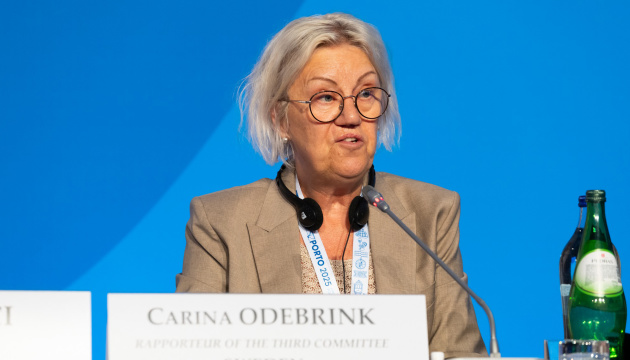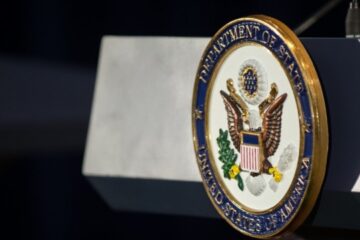Carina Odebrink, a member of the Swedish Riksdag (Parliament) and Special Rapporteur of the OSCE Parliamentary Support Team for Ukraine, is convinced that in the end, Russian dictator Vladimir Putin will stand trial in The Hague and be held accountable for his crimes, particularly the abduction of Ukrainian children.
At the annual session of the OSCE PA, which concludes on July 3 in Porto, she presented a thematic report focused on the mass abduction and deportation of Ukrainian children by Russia, their forced adoption, and the erasure of their Ukrainian identity — “directed and supported from the very top of Kremlin leadership.”
The report also includes a series of recommendations for the OSCE Parliamentary Assembly, which, according to Odebrink, “should take more resolute action to enforce the decisions of the annual declarations concerning the Ukrainian children.”
In an interview with Ukrinform, Carina Odebrink spoke about the political implications of her report, the mechanisms for returning the Ukrainian children abducted by Russia, the need to strengthen sanctions against Russia, and why no peace agreement can afford to ignore this tragedy.
RUSSIA IS TRYING TO DESTROY UKRAINE’S FUTURE BY TAKING ITS CHILDREN
– Ms. Odebrink, you are the Special Rapporteur of the OSCE PA Parliamentary Support Group for Ukraine. Could you please tell us about your mandate and priorities in this role?
Last year, I was appointed by the President of the OSCE Parliamentary Assembly to join the Parliamentary Support Team for Ukraine as a Special Rapporteur, serving also as the Third Committee Rapporteur, which focuses on democracy, human rights, and humanitarian questions. My primary focus has been on the abduction and deportation of Ukrainian children by Russia.
But I also believe it’s very important to highlight the situation of women in Ukraine: sexual violence against women, both as a weapon of war and as gender-based violence. For example, men returning from the front, suffering from PTSD, may unfortunately become perpetrators of violence within the family.
However, my report, presented at the Porto session, focuses solely on the issue of deported Ukrainian children.
– Thank you for placing the issue of Russia’s abduction of Ukrainian children at the center of your work. The world must not forget these crimes, and your report helps keep attention on them. How do you see the role of your report in mobilizing the international community to address this issue? And what can the OSCE PA do to help Ukraine return the abducted children and bring those responsible to justice?
– My report aims to raise awareness and to send a strong message within the OSCE – particularly to the governmental side, which is a key part of the organization. The OSCE has already initiated four reports through the use of the Moscow Mechanism, and one of these specifically addresses the issue of deported Ukrainian children.
I believe my role now is to build on that work. Together with Ukraine – since it is Ukraine that needs to take the initiative – we could launch another report focused exclusively on these children, again using the Moscow Mechanism.
Various organizations, including the UN, the Council of Europe, the European Union, and President Zelensky’s “Bring Kids Back UA” initiative, are working on this issue. But I think it’s crucial that we coordinate better. Yes, we need to make decisions, to write reports, and so on – but we also need to walk the talk, not just talk the talk.
I hope my work will become even more constructive going forward – that it will help increase pressure on Russia to stop abducting children and encourage other OSCE participating states to actively support Ukraine.
Not just today – because this is not a short-term issue. It will remain important for decades. These children are not only Ukraine’s future today – they are Ukraine’s future after the war ends.
And, you know, abducting and deporting children – I think it’s one of the worst crimes you can commit in war. If your goal is to destroy a country’s future, then taking away its children is the most effective way to do it.
And that is exactly what Russia is doing.
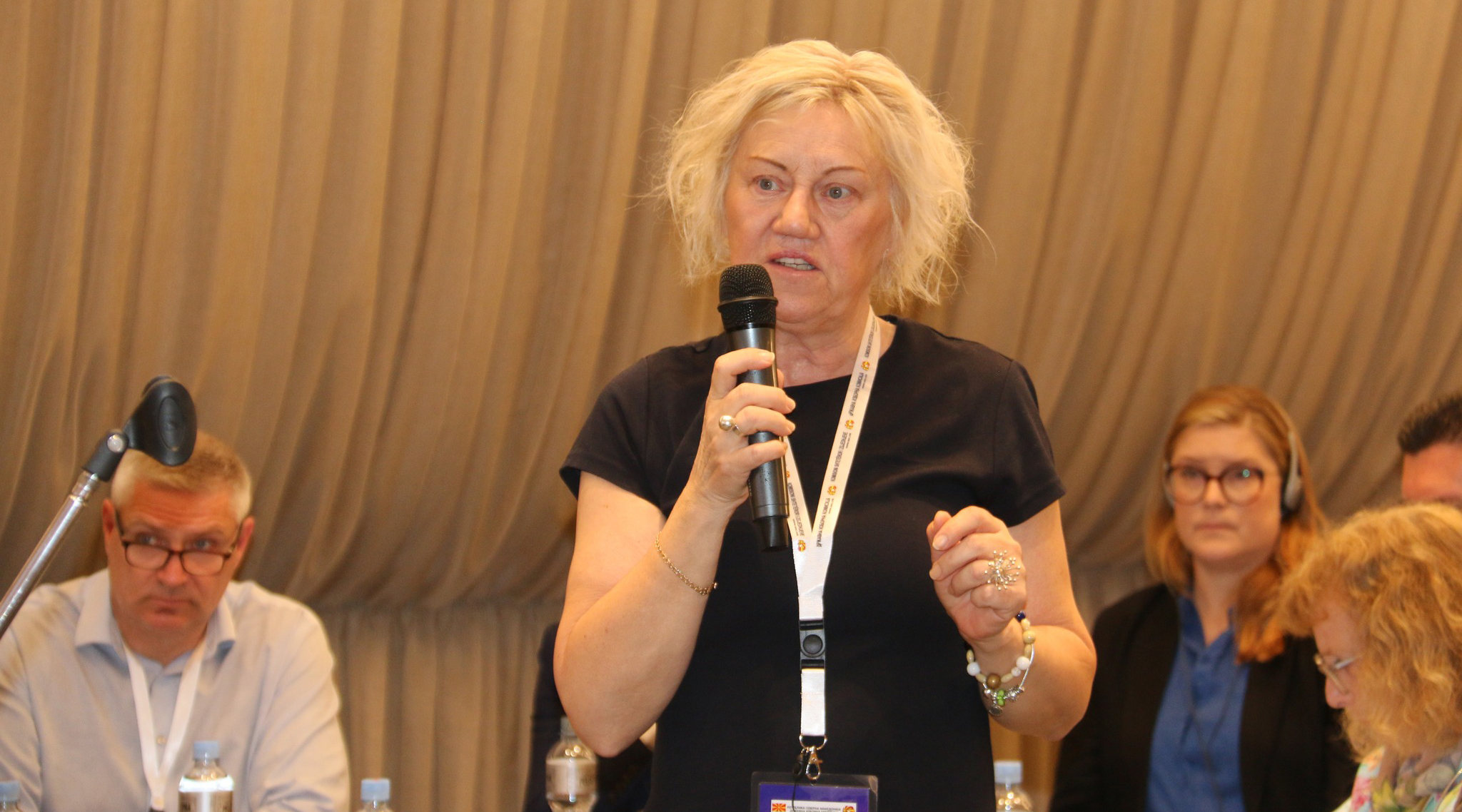
I BELIEVE PUTIN WILL STAND TRIAL IN THE HAGUE
– In your report, you note that we are dealing not only with the physical abduction of children but with a centralized attempt to erase their Ukrainian identity. Can we speak of genocide by the Russian Federation, since this includes the “forcible transfer of children from one national group to another”?
– Yes, I think we could speak about genocide. And the International Criminal Court’s arrest warrants for Vladimir Putin and Russia’s children’s ombudsman, Maria Lvova-Belova, underscore the seriousness of these actions.
This is about erasing the identity not only of each individual Ukrainian child, but also of the Ukrainian nation as a whole. That’s why it is crucial for the world – especially the West – to support Ukraine as much as possible, so Ukraine can win this war. There can be no resolution without Ukraine’s success.
It’s essential to support Ukraine and the children not only today, but also through healthcare, psychosocial support, education, and so on – because when the war ends, it will be the children and young people who will rebuild the future of Ukraine.
– You also emphasize that these actions are systemic and take place with the direct involvement and support of the highest levels of leadership in the Kremlin. In your opinion, what role does Vladimir Putin personally play in organizing these crimes? And do you believe it is realistic to bring him to justice in The Hague, including for the abduction of Ukrainian children?
– Yes, I firmly believe it’s possible – and I must, because losing hope would be devastating. There is so much to worry about today: Russia’s war of aggression against Ukraine, the situation in the Middle East, and the very real threat to the international rules-based order. So we need to have faith in our international institutions.
The fact that the ICC has issued arrest warrants for Putin and the children’s ombudsperson is incredibly important, and we must stand by that. If we don’t, we risk silently accepting what is happening.
Of course, this is a very complex issue. And for every day that passes, the children who have been deported from Ukraine – who may have been given new names, new identities, and forbidden to speak Ukrainian – risk losing a part of who they are. A year in the life of a child is a very long time. And I think Putin understands this. The longer they stay, the more they forget where they come from. That’s terrifying.
But let’s also not forget that there are 1.7 million children still living in occupied territories, still with their families. They are also deeply affected by this war. So while the report focuses on deported children, we must remember that all Ukrainian children are impacted.
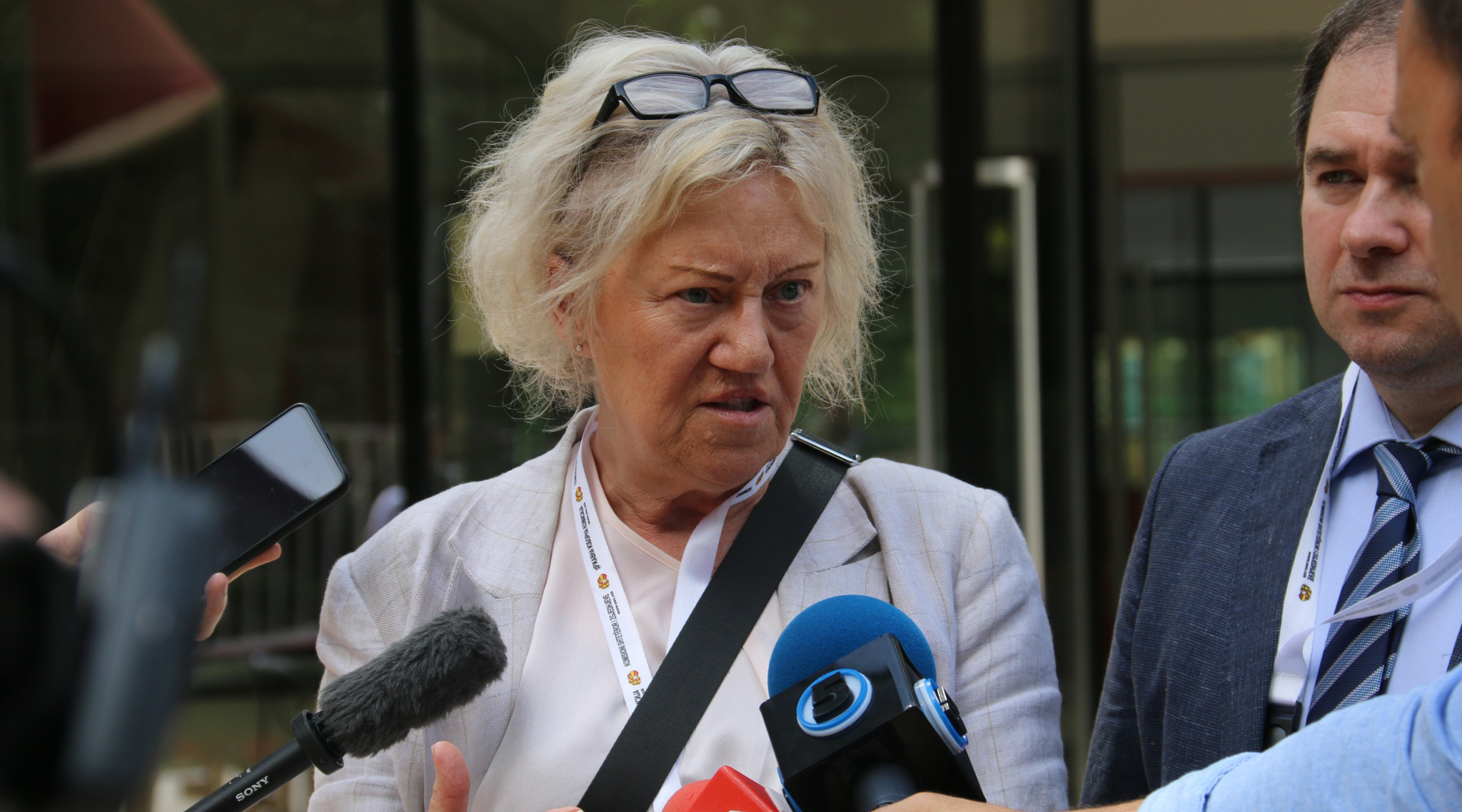
THE WORK OF THE YALE HUMANITARIAN RESEARCH LAB MUST BE SUPPORTED
– One of the key challenges, as you also note in your report, is the lack of information from the Russian Federation, which provides no data on the number of children illegally deported or their whereabouts. Moreover, in many cases, Russian authorities change their personal data. What tools and mechanisms, in your view, could be used to identify the abducted children and establish their locations?
– In May, I attended a seminar in Helsinki organized by the Parliamentary Assembly of the Council of Europe, where a representative from the Yale Humanitarian Research Lab spoke. Their advanced data analysis has been vital in identifying many of these children. Unfortunately, the new U.S. administration has cut funding for some of Yale’s humanitarian research efforts, including for this program.
But the work of the Yale Humanitarian Research Lab is crucial because Russia refuses to share information about these children. So I believe that we should support such initiatives to continue their essential work.
– Could the Assembly or its member states — for example, your country, Sweden — consider supporting this or similar research efforts?
– I know that Nathaniel Raymond from Yale University had visited Sweden shortly before the Helsinki meeting. I believe they are actively trying to engage in dialogue with countries to secure funding for their work. I really think governments must support Yale University because they have the tools and methodology needed to identify these Ukrainian children. I’m not sure if it makes sense for other countries to start similar projects, but it is vital to support Yale’s existing work.
– And what role should international organizations such as the ICRC and UNICEF play in this? And do you have communication with them in your role as Special Rapporteur?
– I haven’t yet directly engaged with these organizations, but I’ve participated in conferences where representatives from civil society and humanitarian organizations, including those working with the Red Cross and UNICEF, were present. So I’ve had opportunities to speak with them and listen. Moving forward, I plan to engage more directly with these organizations, both outside and within Ukraine, to enhance our efforts in identifying and returning these children.
You know, I was in Ukraine at the beginning of this year with the support of the OSCE PA, but I would like to return with an even stronger focus specifically on the children.
SANCTIONS ARE WORKING — WE MUST KEEP UP THE PRESSURE TO STOP THE ABDUCTION OF CHILDREN
– One of the recommendations in your report is to demand that Moscow provide a list of all abducted children and ensure their return. But the question is: how can Moscow be compelled to provide such a list? Would specific sanctions be necessary?
– Yes, absolutely. I think it’s crucial that we, from the Parliamentary Assembly, send a strong message to the governmental level within the OSCE. One possibility could be to initiate a new report under the Moscow Mechanism, if Ukraine considers that helpful. But first and foremost, I believe that imposing tougher sanctions on Russia is the most effective tool.
In Sweden and other countries, there has been a lot of discussion about Russia’s so-called “shadow fleet.” And I believe we need to strengthen sanctions in that area too. Because as long as Russia is allowed to generate revenue, it can continue financing the war – and with it, the deportation of more children. That’s why strong and targeted sanctions are essential.
We also know that sanctions can work. Take Belarus, for instance, which has supported Russia’s war against Ukraine. The sanctions imposed on Belarus have had an impact – to my knowledge, there are no more known camps or facilities for deported Ukrainian children in Belarus. This shows that sanctions do make a difference.
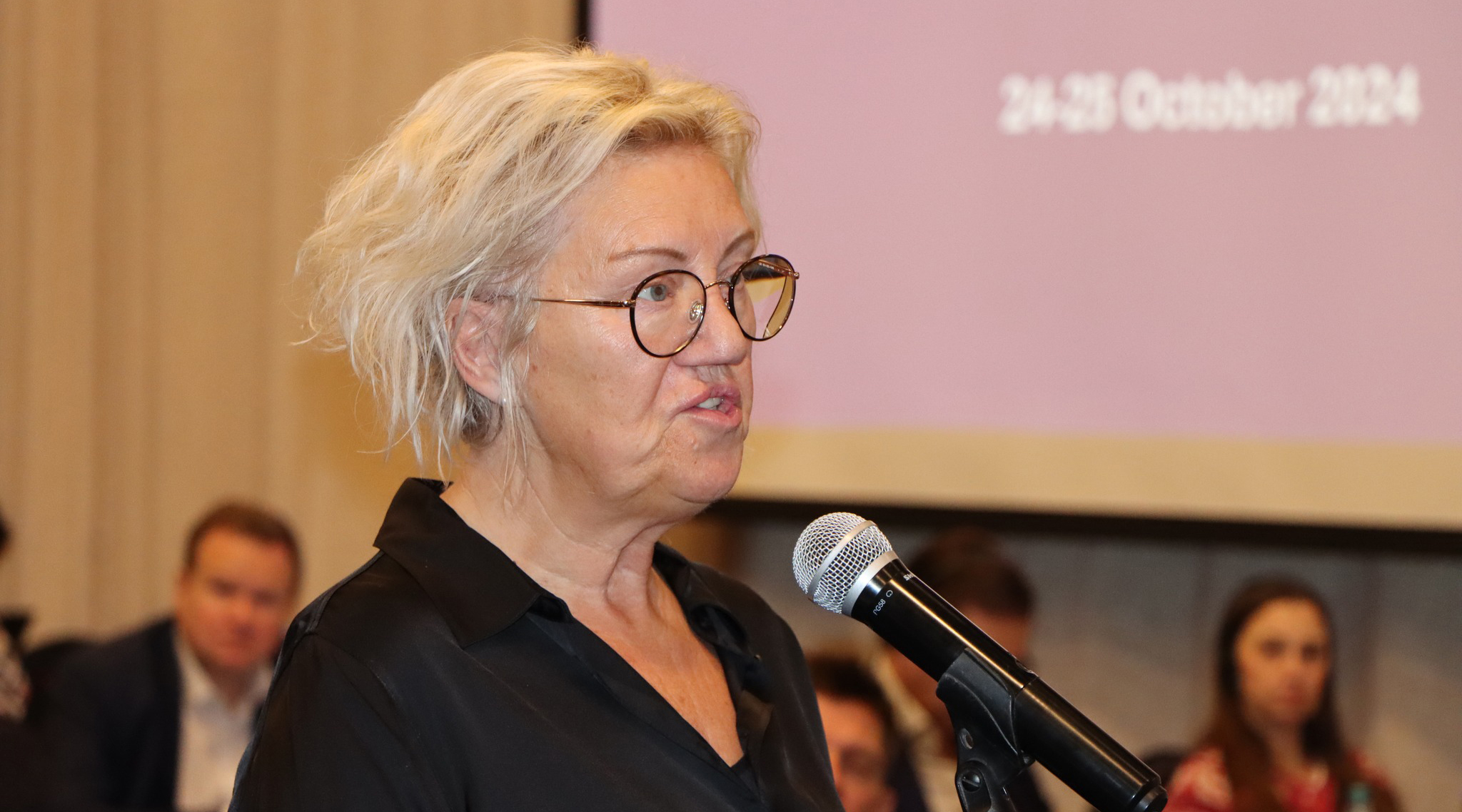
THE RETURN OF THE CHILDREN MUST BE CENTRAL TO PEACE NEGOTIATIONS
– Your report emphasizes that any peace negotiations or ceasefire agreements must include a clear plan for the return and reintegration of illegally abducted Ukrainian children. What concrete steps can the OSCE PA take to ensure this recommendation is implemented? And how can the international community be convinced not to ignore this condition?
– We must continue to highlight this issue consistently. Whenever we hear about peace talks between Russia and Ukraine – whether involving the U.S. or other mediators – we must emphasize that the fate of the children must be on the table. It cannot be that peace or ceasefire agreements are reached while ignoring the abducted children. We can’t allow it to become a case of: “Well, that’s tragic, but let’s move on.” No – the issue of the children must remain central in all negotiations, at every stage.
– Which of the recommendations in your report do you consider the most urgent to implement?
– As I mentioned earlier, ensuring funding for Yale Humanitarian Research Lab`s work is, in my view, the most urgent. Their research plays a critical role in identifying the children and tracking their whereabouts.
Another important priority is supporting Ukraine’s healthcare and social welfare systems, particularly for psychosocial support. I spoke with the Finnish Children’s Ombudsman in Helsinki, who highlighted the immense challenge of addressing the trauma of these children, both now and after the war.
There is strong support for Ukrainian children – not only within the OSCE PA, but in other organizations as well. I believe we must cooperate more closely, work in a coordinated way, and be concrete – including by imposing further sanctions on Russia.
When I return to Sweden, I intend to speak with our Minister for Foreign Affairs, raise these issues, and press for continued action. It’s critical that we keep this topic on the agenda – and that we always keep the children at the very top of that agenda.
Vasyl Korotkyi, Vienna
Photo credit: OSCE Parliamentary Assembly
Source: Carina Odebrink, Special Rapporteur of the OSCE Parliamentary Assembly, Swedish MP

